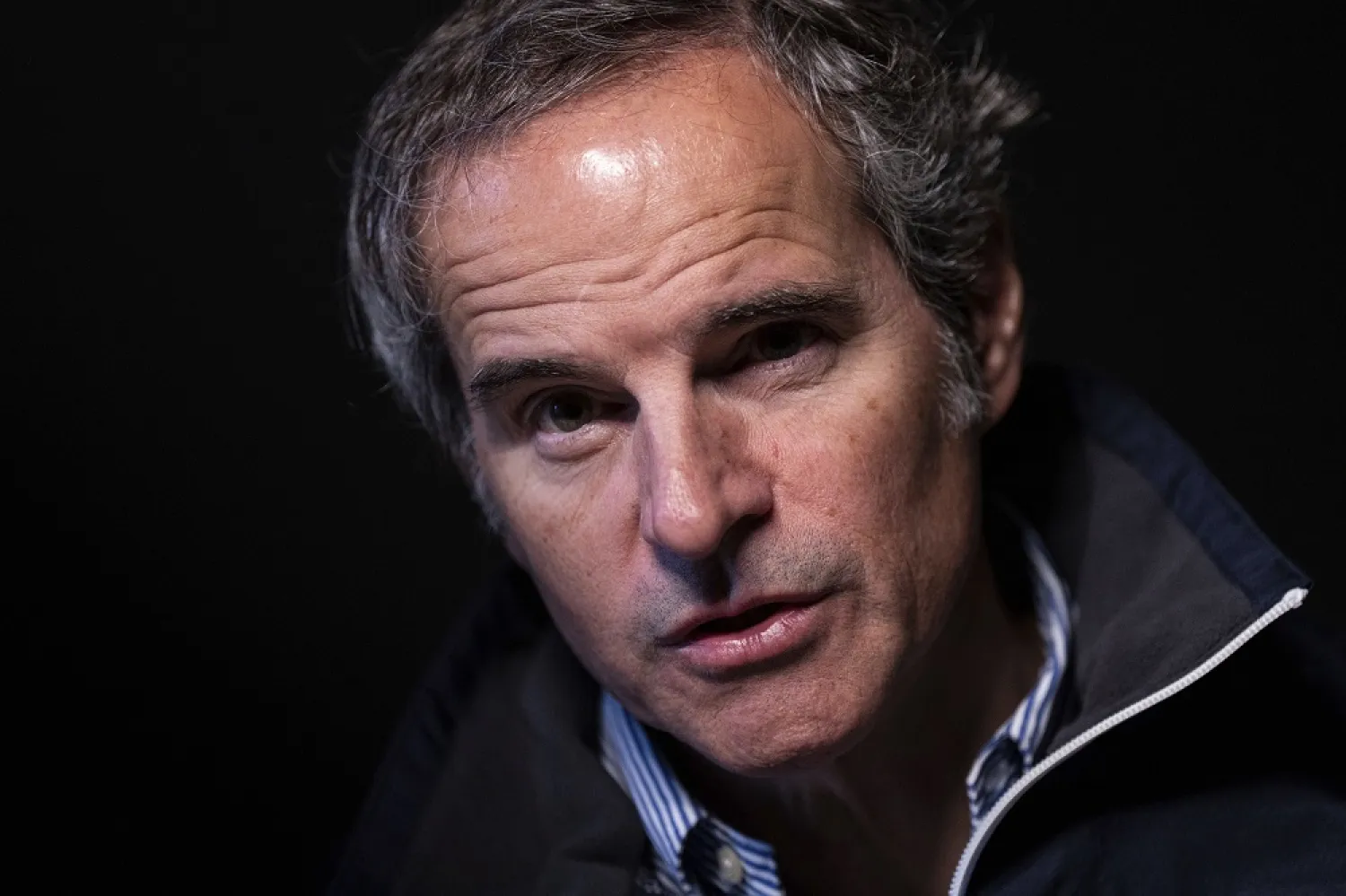A deal to protect Europe's largest nuclear power plant from a catastrophic accident due to fighting in Ukraine could be "close," the head of the International Atomic Energy Agency said Tuesday, but warned that intensified combat in the area has increased risks to the facility.
In an interview with The Associated Press a day before he was to cross the front lines for a second time to visit the plant, IAEA Director General Rafael Mariano Grossi said he felt it was his duty to ramp up talks aimed at safeguarding the facility. He met Monday with Ukrainian President Volodymyr Zelenskyy and said he would "most probably" head to Russia in the coming days.
"There is an increased level of combat, active combat" in the area of the Zaporizhzhia Nuclear Power Plant," Grossi said. "My teams there report daily about the attacks, the sound of heavy weaponry. This is practically constant."
Grossi has long called for a protection zone to be set up around the plant, which is very near the front line of the war. But so far, an agreement has been elusive.
"It is a zone of extreme volatility. So the negotiations are, of course, affected by the ongoing military operations," Grossi said. "I would not characterize the process for the last few months as one that has not led to any progress."
The nuclear agency head said he has maintained a professional dialogue with both Russian and Ukrainian officials as he seeks a deal "to ensure ... that there is no radiological accident, major catastrophic accident, in Europe."
"I think it's close," he said of the possibility of a deal. "Obviously, obviously, I need a political commitment, political decision. And in this case, what I want to stress is that what they would be agreeing on is the protection of the plant. They are not agreeing with each other. They are agreeing with the IAEA. They are agreeing with nuclear safety and security. This is a very important element which I believe should be taken into consideration."
The negotiations are specific to preventing a nuclear disaster at the plant and not aimed at securing a broader cease-fire, Grossi stressed.
"What we are doing, the way we are presenting things is as a series of principles or commitments that the IAEA presents and everybody would be able to support," he said. "So in my opinion this should make an agreement possible, not impossible, not utopian, not something for which we should be waiting for months and months on end."
The head of the nuclear agency said he sees "an increased level of danger" due to the fighting. "I think the principle here is to avoid an accident, and the possibility of having it is increasing. This is a matter of fact."
The UN's atomic energy watchdog, which is based in Vienna, Austria, has a rotating team permanently based at the plant. The power station's six reactors are in shutdown and the plant has received the electricity it needs to prevent a reactor meltdown through one remaining functioning power line.
Plant personnel have had to switch to emergency diesel generators six times during the 13-month war to power essential cooling systems. When backup power supplies might be needed again is "absolutely unpredictable," Grossi said.
"It’s because of the shelling, it’s because of the drone, it's because of an attack, it's because of an offensive operation or a defensive operation. So it’s not something that you can really plan for," he noted. "It is occurring, has been occurring. And if we base ourselves on what we have been seeing, it’s going to happen again."
Military analysts expect the fighting between invading Russian troops and Ukrainian forces to further escalate as spring progresses and the now muddy ground hardens, allowing heavy military machinery to advance on the battlefield.
"There is talk about offensives, counter-offensives," Grossi said. "The concentration of troops, concentration of military equipment, heavy weaponry has grown exponentially in the area near to the plant, which of course, makes us believe that the possibility of an accident, of a renewed attack ... could grow."
While the last direct shelling of the plant occurred in November, the surrounding area was still being hit, the nuclear agency chief said, noting that "we have far more military activity, and more is announced."
The IAEA head said he has discussed the situation at the highest levels with both sides and was still discussing "different scenarios that could lead" to the creation of a protection zone around the plant.
"This proposal is about preventing a nuclear accident. It Is not to create any situation which may have a military advantage or disadvantage or a legitimization of the situation," he said.
"So I have to walk this fine line talking to both, trying to make it so that both understand very well that a radiological accident ... here and also on the Russian side, would be extremely serious, and it’s something that we really need to avoid."
Grossi's return to Zaporizhzhia to visit the power plant also aims "to consolidate the presence of the IAEA, which is indispensable, to provide technical assistance of nuclear safety and security, to give an objective, impartial impression of what is really happening here," he said.









